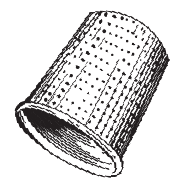Mom can’t remember her collapse. Not just that it happened but whole days, the week around it, are just gone. So when she calls out, alarmed, What happened to my hair? Why are there staples in my head? I know she’s glimpsed her shaved head in the bathroom mirror and needs reminding.
(Once when she forgot, church lady Mrs. O was visiting and she chided, Why haven’t you girls told her, as though my sisters and I wouldn’t tell Mom she suffered a catastrophic brain injury, that we’d lie, say she lost a bet, pretend her shorn head is a fashion choice gone wrong knowing Mom, a pastor’s wife, is fully committed to modesty, her formerly shoulder-length hair a glory and a covering.)
To calm our mother, we take her hand, steer her away from the mirror, tell her again what happened. We use simple terms—a blood vessel broke open, you were in coma—not the words the doctors and nurses use, the clinical language—subarachnoid hemorrhage, angiogram, shunt—that defines her as a head injury patient and not our mother.
What else did I forget? Mom prods, after yet another retelling of her collapse, the weeks in critical care, the church people crowding the waiting room each night praying—not for healing, Dad insists, but for God’s will. She listens to us, head cocked to the side, the way she watches her favorite black-and-white movies starring Mickey Rooney or Humphrey Bogart. like it’s an interesting story that happened to someone else. We leave out the painful parts, how scared we were (are), how a weeping nurse took us to the ER to say goodbye to her, the breathless hours waiting out her brain surgeries. The words we use to describe ourselves—heartbroken, pleading, terrified—stay the same and we don’t say those around Mom either. We pretend like we always knew God would spare her, that she’d wake up and be our mother again.
“Do you remember Kansas?” I ask her a few weeks later. I’m portioning meds into a plastic pill box with little cubes for each day of the week. Mom’s neurologist advised us to weave her past back in as naturally as we can; I’ve wondered whether her hometown, her parents and siblings still lurk in her memory.
Yes I remember Kansas, I’m not an imbecile, Elise, my mother says tartly. It’s where I had my surgeries, she adds, but that’s wrong, she hasn’t visited her childhood home in years. The neurologist also warned that our disciplined mother might confabulate, become angry or despondently sad. Sometimes she insists Dad is her son, that JFK is still alive (I voted for him, I ought to know), that she has to heal up quick so she can return to her nonexistent job at the post office.
I feel like I forgot me, Mom says wistfully. She’s home finally, after two weeks at a rehab center. She relearned how to bake brownies and complete Sudokus in record time. Her therapist marveled. If healing were competitive, Mom’s a winner.
But her post-aneurysm handwriting is small and cramped, as though she’s about to vanish into the tiny cursive. The aneurytic stroke filled her left eye with floaters so instead of reading her KJV Bible for hours a day, she binge-watches TV shows, “Green Acres” and “Wheel of Fortune.” And she’s so patient and kind, waiting uncomplainingly for me to help her off the toilet, never yelling when I let the back door slam or when my little sister smarts off after being scolded about a too-short skirt.
Watching Paige flounce upstairs to change skirts, I comment, “If Rose or I ever sassed you like that—
“What? What do you mean, Elise?”
“You’d have spanked our behinds until we couldn’t sit.”
Tears turn Mom’s dark eyes to liquid chocolate. “Did I hurt you girls? Was I a bad Mom before the aneurysm?” she weeps.
“No no, you’re still our same old Mumsy,” I lie, using our childhood nickname. To the church people and even Gramp and Gram, she’s still beautiful Marian, with a dazzling smile and servant’s heart. But for Dad and my sisters and me, a different, strange Mom came home.
When we were little, Mom would sometimes pretend to be a monster we called Ugly Eye. One minute she was peeling potatoes, the next, her permed hair was mussed in her face, eyes rolled back, and she’d moan, Look out it’s the Ugly Eye. My sisters and I would flee in terror, bare feet slipping on the kitchen linoleum. I was pretty sure Monster-Mom wasn’t really Mom but where had she gone, where was the calm, capable mother who sewed our matching culottes and listened to us recite Scripture verses?
I feel a similar fear now. Who is this fragile, emotional mother, so kind, so weak? Who never gets angry, never tells us we’re bad Christians, bad daughters, bad girls? Where’s the mercy-less pastor’s wife who punished us with spankings, forbidding us to cry, praying with us as we thanked God for a mother who loved us enough to beat us with a ping pong paddle?
It’s one thing to forget what happened. It’s another to forget who you were. Who you are.
Is she absolved, now that she’s no longer that Mom? And if Mom’s not Mom anymore, who are we? Who am I?
Is old Mom buried somewhere inside her damaged brain, concealed like a pill in the meds box? Each day we flip open the little shutter to the day’s dosage and as she swallows the tablets that keep her alive, gulping down apple juice and laughing, I sit beside her and think, Where’s the monster? Is this is the real her, the real Mom? Am I the real me?


